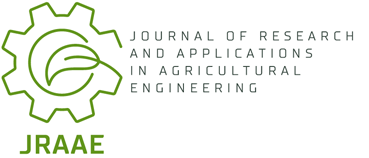Current issue
Online First
Archive
Instructions for Authors
Guide for Authors
Peer Review Policy
Research Ethics Policy
Ghostwriting and Guest Authorship
Copyright
Open Access Policy
Plagiarism
About the Journal
Aim and Scope
Scientific Board
Publisher
Editorial Board
Indexing in Databases
Personal Data Protection
Repository Policy
Contact
ORIGINAL PAPER
The effect of probiotics on poultry dung application, reduction of mineral fertilization and yield of selected crops
1
Poznań University of Life Sciences, Department of Grassland and Natural Landscape Sciences, Poland
Journal of Research and Applications in Agricultural Engineering 2014;59(3):125-128
KEYWORDS
ABSTRACT
Poultry dung may hardly be applied in fertilization of crops unless priobiotics are used and in many cases it may not be
used as fertilizer, since it causes the socalled physiological drought. The use of adequate amounts of probiotics, i.e. the socalled
live microorganisms, has an advantageous effect on fertilization properties of poultry dung. Application of poultry
dung in combination with probiotics resulted in high, stable yields of cereals. This makes it possible to eliminate mineral
fertilisation on farms, leading to tangible financial returns.
REFERENCES (15)
1.
Araji A.A., Abdo Z.O., Joyce P. Efficient use of animal manure on cropland economic analysis. Bioresource Technology. 79: 179-191, 2001.
2.
Chaudri A.M., Allan C.M.G., Badawy S.H., Adams M.L., McGrath S.P., Chambers B.J. Cadmium content of wheat grain from a long-term field experiment with sewage sludge. Journal Environmental Quality, 30, 1575-1580, 2001.
3.
Gondek K. The influence of soil treatment by untreated and composted tannery sludge on yield, nutrient status, and chromium content in selected crops. Plant, Soil and Environment, 51, 4, 179-192, 2005.
4.
Douglas C. E. The long term effects of manures and fertilizers on soil productivity and quality: a review. Nutr. Cycl. In Agroecosys. 66: 165-180, 2003.
5.
Grzebisz W. Wpływ wieloletniego nawożenia organicznego i mineralnego na zawartość próchnicy, aktywność biologiczną i trwałość struktury gleby [The effect of long-term organic and mineral fertilisation on humus content, biological activity and stability of soil structure]. Proceedings of symposium „The role of fertilisation in improvement of productivity and soil fertility”. Olsztyn: 91-105, 1988.
6.
Jamil M., Qasim M., Umar M., Rehman K. Impact of organic wastes (sewage sludge) on the yield of wheat (Triticum aestivum L.) in a calcareous soil. International Journal Agricultural and Biology, 6, 465-467, 2004.
7.
Kaczmarek Z., Jakubus M., Grzelak M., Mrugalska L.: Wpływ dodatków różnych dawek efektywnych mikroorganizmów do poziomów orno-próchnicznych gleb mineralnych na właściwości fizyczne i wodne [The effect of addition of various doses of effective microorganisms to arable and humus horizons of mineral soils on physical properties and water relations]. J. Res. Appl. Agric. Engng, Vol. 53 (3): 118-122, 2008.
8.
Kosakowski K., Grzelak M., Kosakowski A. Wpływ zastosowania preparatów priobiotycznych na zdrowotność, jakość oraz plon wybranych roślin. [The effect of application of probiotic preparations on health, quality and yield of selected crops], Journal of Research and Applications in Agricultural Engineering Vol. 58 (3). Wyd. PIMR Poznań: 261-267, 2013.
9.
O`Sullivan M.G., Thornton G., O`Sullivan G.C., Collins J.K.: Probiotic bacteria: myth or reality? Trends Food Sci. Technol., 3: 309-314, 1992.
10.
Petersen S. O., Kristensen K., Eriksen J. Denitrification losses from outdoor piglet production. J. Environ. Qual., 30: 1051-1056, 2001.
11.
Skoien S. Long-term effects of crop rotation, manure and straw on soil aggregation. Norw. J. Agric. Sci. 7: 231-247, 1993.
12.
Sobczak J., Seeberg H. P, Waligóra T. Kompostowanie odchodów drobiowych - próba wyznaczania wydatnej technologii [Composting of poultry dung - an attempt to indicate efficient technology]. Polskie Drobiarstwo, 7: 47-49, 2004.
13.
Suwara I. Rola wieloletniego nawożenia w kształtowaniu wybranych właściwości gleby lekkiej ze szczególnym uwzględnieniem stosunków wodno-powietrznych [The role of long-term fertilisation in modification of selected properties of light soil focusing on water and air relations]. Wyd. SGGW Warszawa: pp. 98, 2010.
14.
Szulc W., Rutkowska B., Łabętowicz J., Korc M. 2006. Rola obornika na glebach lekkich w świetle wyników trwałych doświadczeń nawożeniowych [The role of manure on light soils in view of results of long-term fertilisation experiments]. Nawozy i Nawożenie. 4 (29): 159-164.
15.
Wężyk S. Odchody drobiowe - zanieczyszczenie czy szansa [Poultry dung - contaminant or promising prospect]. Polskie Drobiarstwo, 1: 40-43, 2004.
Share
RELATED ARTICLE
We process personal data collected when visiting the website. The function of obtaining information about users and their behavior is carried out by voluntarily entered information in forms and saving cookies in end devices. Data, including cookies, are used to provide services, improve the user experience and to analyze the traffic in accordance with the Privacy policy. Data are also collected and processed by Google Analytics tool (more).
You can change cookies settings in your browser. Restricted use of cookies in the browser configuration may affect some functionalities of the website.
You can change cookies settings in your browser. Restricted use of cookies in the browser configuration may affect some functionalities of the website.


